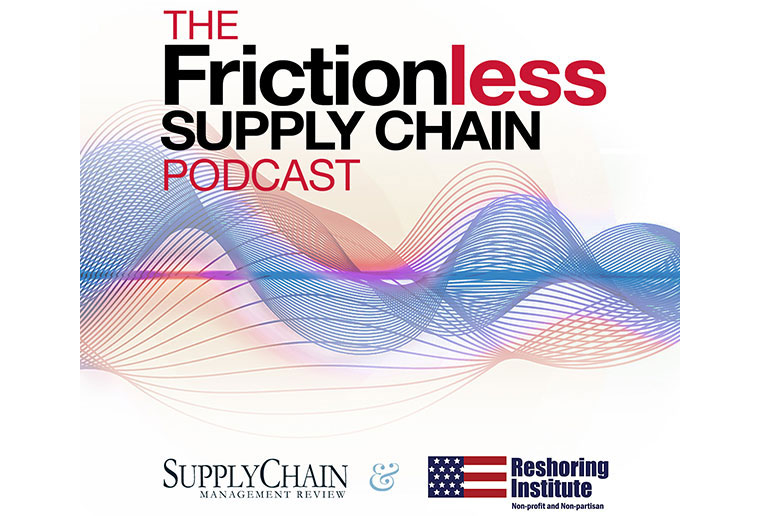2019 is filled with promise and potential problems for global trade players, report industry analysts.
Here are a few to consider:
Maersk means it.
Aimed at accelerating the transition to carbon neutral shipping, Maersk announced last month its goal to reach carbon neutrality by 2050. To achieve this goal, carbon neutral vessels must be commercially viable by 2030, and an acceleration in new innovations and adaption of new technology is required. Climate is one of the most important issues in the world, and carrying around 80% of global trade, the shipping industry is vital to finding solutions. By now, Maersk's relative CO2 emissions have been reduced by 46 percent. As shipping volumes will continue to grow, efficiency improvements on the current fossil based technology can only keep emissions at current levels but not reduce them significantly or eliminate them. “The only possible way to achieve the so-much-needed decarbonization in our industry is by fully transforming to new carbon neutral fuels and supply chains,” says Søren Toft, Chief Operating Officer at A.P. Moller - Maersk.
Greening for profit.
Given the ecosystem complexity of new global enterprises these days, logistics managers are now looking to sustainability to unlock new financial benefits. A new HSBC survey of more than 8,500 companies in 34 markets – Navigator: Now, next and how for business – has found a trend of businesses making sustainability changes in their supply chains to improve their bottom lines. Almost a third (31%) of companies globally plan to make sustainability-related changes to their supply chains over the next three years. Of those making ethical or environmentally sustainable changes to their supply chains, cost efficiencies (84%) and improved revenues and financial performance (also 84%) are the main motivations. This trend comes as companies face increasing pressure from customers to be more sustainable and transparent about their sourcing, say researchers. With around 80% of a company's environmental impact found in its supply chain the “green” credentials of strategic suppliers plays critical role.
Annual checkup.
Gartner released its 10th annual Healthcare Supply Chain Top 25 Ranking last month, recognizing organizations across the healthcare value chain that demonstrate leadership in improving human life at sustainable costs. “Healthcare supply chains today face a multitude of challenges: increasing cost pressures and patient expectations as well as the need to keep up with rapid technology advancement, to name just a few,” says Stephen Meyer, senior director at Gartner. “In order to be successful, supply chains must sport a specific skill set that consists of patient focus, collaboration and network visibility. The top supply chains in this year's ranking have embraced those skills and excelled in executing them.” Cleveland Clinic took a big leap forward and jumped from No. 8 to the top spot. The organization has been in the top 10 of the ranking for the past three years and its continuous efforts to improve and innovate paid off.
Integrating leadership.
Integrating a supply chain under one executive can drive value but may come with its own challenges, posits a new white paper by the Global Supply Chain Institute at the University of Tennessee, Knoxville's Haslam College of Business. According to its authors, solutions may be found in redefining the concept of supply chain integration. In the course of its research, the GSCI team uncovered more than 100 best practices and culled them down to eight actionable ones. Supply Chain Integration Strategy: Best Practices provides details on the implementation of each along with examples of success stories. The study seeks to answer the question “Is end-to-end supply chain integration the right strategy for your business?” It details why leadership is critical to success in this endeavor at any level and is supplemented with an integration tool kit.
EU trucking blues.
The London-based consultancy Transport Intelligence (Ti) issued a report last month indicating that the truck driver shortage in the EU is as dire as it is in the U.S. According to European Road Freight Transport 2018, the shortage of drivers in the UK, Germany, France, Denmark Sweden and Norway numbers about 127, 500 with Great Britain facing the biggest challenge. Germany is close behind. “In Germany, the DSLV transport union reports that in the next 15 years, two-thirds of drivers will retire. Germany is facing a shortage of 45,000 truck drivers, with around 30,000 leaving the profession every year. This compares with only 2,000 people receiving truck-driving qualifications each year,” states the report. France has a shortage of 20,000 drivers, while trucking associations in Sweden, Denmark and Norway report shortages of 5,000, 2,500 and 3,000, respectively.
Blockchain scrutinized.
The World Trade Organization (WTO) launched a new publication entitled Can Blockchain Revolutionize International Trade? sparked by the growing global interest and debate on the new techology. The publication introduces a basic explanation of the Blockchain basics and goes on to examine the relevance for trade facilitation by reviewing its current and potential application in the various areas covered by WTO rules. The publication provides an insight into the extent to which the Blockchain technology could affect cross-border trade in goods and services and in intellectual property rights. The possibility of reducing trade costs and enhancing supply chain transparency is addressed, as well as the opportunities Blockchain provides for micro, small and medium-sized enterprises. The publication also discusses various challenges to the wider and more significant impact of Blockchain on international trade.
SC
MR


Latest Supply Chain News
- Tips for CIOs to overcome technology talent acquisition troubles
- There is still work to do to achieve supply chain stability
- Blooming success: The vital role of S&OE in nurturing global supply chains
- Supply chain salaries, job satisfaction on the rise
- How one small part held up shipments of thousands of autos
- More News
Latest Podcast

 Explore
Explore
Business Management News
- Tips for CIOs to overcome technology talent acquisition troubles
- There is still work to do to achieve supply chain stability
- Blooming success: The vital role of S&OE in nurturing global supply chains
- Supply chain salaries, job satisfaction on the rise
- How one small part held up shipments of thousands of autos
- Investor expectations influencing supply chain decision-making
- More Business Management
Latest Business Management Resources

Subscribe

Supply Chain Management Review delivers the best industry content.

Editors’ Picks





